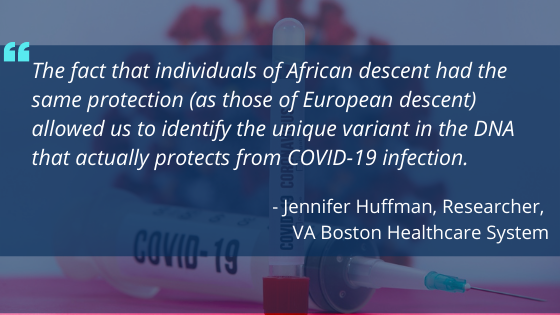The novel coronavirus disease (COVID-19) pandemic has now entered its third year. Since its inception, it has infected people differently — while some witness severe disease, others are grazed by milder symptoms. Why is that? A new study published in Nature Genetics has argued that a gene variant is what provides protection against severe disease.

“The protective Neanderthal-derived haplotype confers approximately 23 percent reduced risk of becoming critically ill on infection with SARS-CoV-2,” the study said. A haplotype is defined as a group of DNA variants inherited together because of how similar they are.
The study was conducted by an international team of researchers from universities such as Columbia, McGill, and Harvard in Canada and the US. It was led by Hugo Zeberg of the Karolinska Institute in Sweden. The Nature Genetics study combined the results of six studies that deal with COVID-19 severity. These were conducted by UK Biobank, Penn Medicine BioBank, Columbia University Biobank, Biobanque Québécoise de la COVID-19, GenOMICC, and the VA Million Veteran Program.
Click to read more.
